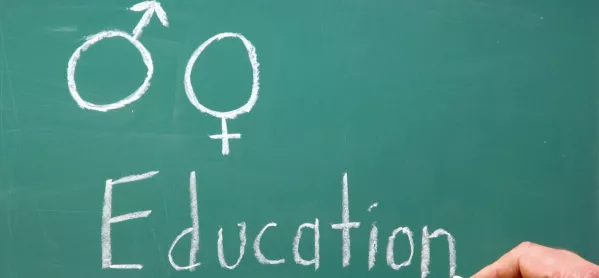Scratch the surface and everyone has a comedy story of sex education - either in the classroom or in the playground. That time a child tried to swallow a condom thinking it was a chewy sweet. The day graffiti about “teabags” appeared on the bathroom walls. The awkward silence of trying to find the right words to respond to a question about same-sex relationships in a group discussion.
Bristol University research has found that while some schools have difficulty acknowledging young people might be sexually active, children themselves do not. Young girls reported being harassed if they asked questions, and boys reported feeling inadequate if they revealed an ignorance about relationships.
Little wonder that teachers consistently say they would like training to manage these situations, and Ofsted, parents and students themselves demand better. When Barnardo’s recently polled 11- to 15-year-olds in England, 70 per cent said the UK government should make sure all children have sex and relationship education. And 87 per cent of parents agreed that age-appropriate lessons on healthy relationships would help to keep their child safe.
Yet while the mechanics of sexual intercourse are a formal part of the biology curriculum, issues like healthy relationships, female genital mutilation, domestic abuse and consent are not. Some schools work extremely hard to fill this gap, but without this being statutory too many will not make time for the kinds of subjects that most agree matter. There has been a 21 per cent decrease in the number of PSHE lessons in recent years, and Ofsted rates 40 per cent of schools as inadequate or requiring improvement when it comes to provision of sex and relationships education (SRE).
Sex education will protect vulnerable children
Despite the myths some may pedal, the push for mandatory SRE is not about encouraging children to have sex. It’s about recognising that, in the modern world, online and offline danger can be everywhere. While most parents work hard to give their children good values, if the other children they come across are not also taught to seek consent or that violence is not an acceptable part of a relationship they are still at risk: 47,000 sexual assaults were reported last year involving children, of which a third involved kids as both victims and abusers. Addressing the way in which children relate to each other is not just a safe-sex issue, but a safeguarding issue.
For too long, not helping children to understand what healthy relationships are has also played a part in their abuse. Both the children’s commissioner and the Jay report into child sexual exploitation in Rotherham have identified a lack of awareness about issues such as consent had made many vulnerable.
Little wonder that there is now cross-party support, with five select committee chairs supporting the call for SRE to be mandatory. And fears that faith schools would oppose the move are not well founded, with many expressing a willingness to work to get this right.
Action on sex education is needed now
Yet, this week the government again voted down plans to make sure all schools - including academies - provide this, claiming they were working on “guidance” and “frameworks” instead. This is the third time in the past six years that laws have been put forward for parliamentary time and been shot down by ministers. With the chaos of Brexit descending on all political activity like the Monty Python foot, we may not get another chance to legislate before 2020.
The Children and Social Work Bill comes back to Parliament for a final time at report stage in February when all MPs can vote on this matter. New Clause 1 would make provision of SRE part of the safeguarding regime - and a failure to offer this in an age-appropriate, inclusive and religiously sensitive manner a matter for Ofsted. It’s time for the government to offer more than briefing the press that this is in the education secretary’s inbox and warm words. Unless the government changes its mind and brings forward its own legislation, New Clause 1 represents our only chance to finally get this to happen. The children who need and want our help and protection deserve nothing less.
Stella Creasy is the Labour and Cooperative MP for Walthamstow. To help her campaign on this issue, please email stella@workingforwalthamstow.org.uk
The 13 January issue of TES is a sex education special issue, with 20 pages looking at what an SRE curriculum should look like, how we should teach it and how teachers should approach it. The magazine is available in all good newsagents. To download the digital edition, Android users can click here and iOS users can click here
Want to keep up with the latest education news and opinion? Follow TES on Twitter and like TES on Facebook
